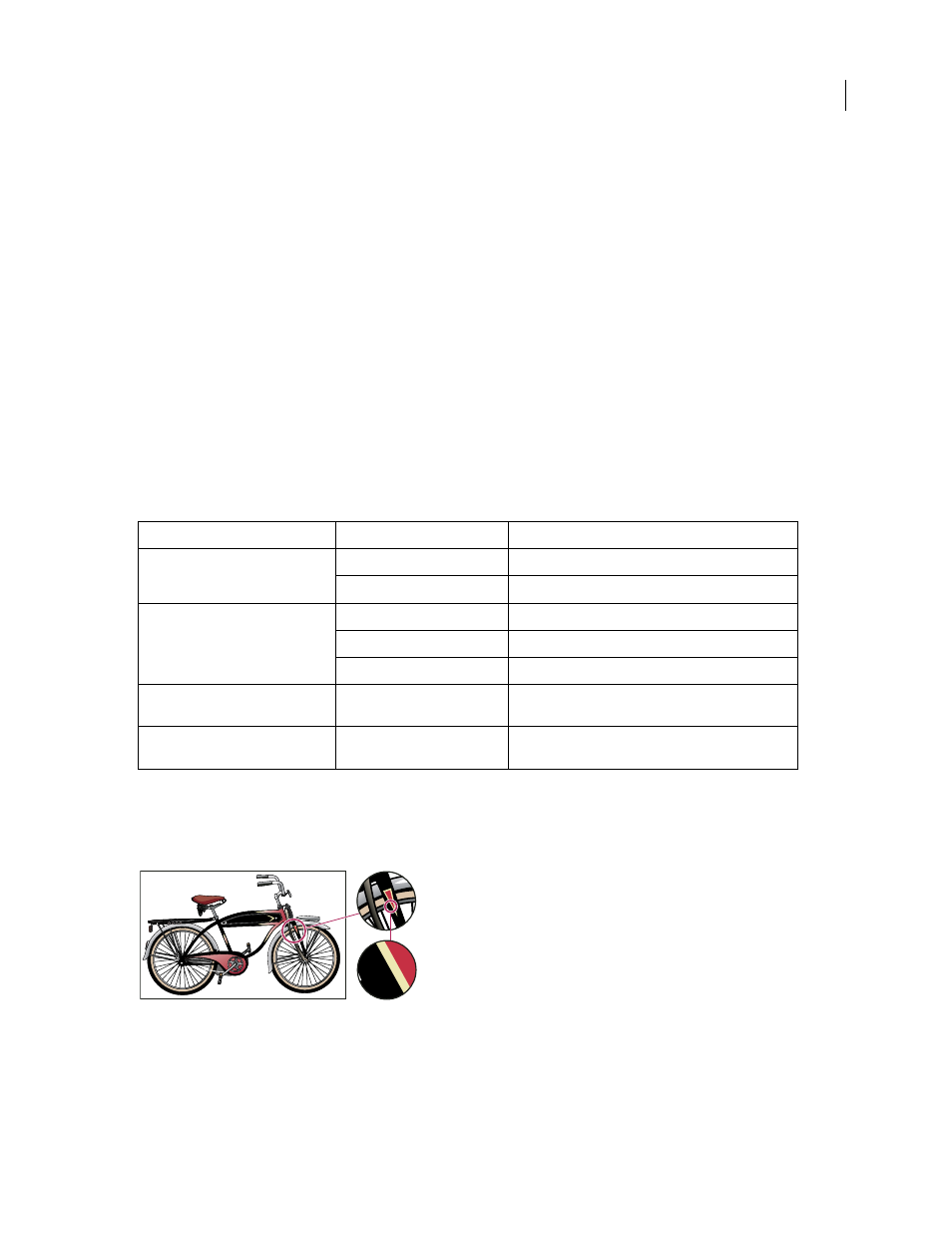Chapter 12: graphics, Understanding graphics formats, Choosing the right graphics format – Adobe InDesign CS3 User Manual
Page 334: About vector graphics

327
Chapter 12: Graphics
The versatile importing capabilities of Adobe InDesign CS3 make it a powerful tool for integrating graphics from
many other programs and file formats, including images from Adobe Photoshop and drawings from Adobe
Illustrator. You can even place pages from PDF files and other InDesign files in an InDesign document.
Understanding graphics formats
Choosing the right graphics format
InDesign can import a wide range of graphics file formats. Consult with the service providers who will help you
produce your document to clarify which formats to use. You can then plan your document around those formats and
the options that best apply to your project.
The following table summarizes what graphics formats would work best for the kind of document you’re designing.
About vector graphics
Vector graphics (sometimes called vector shapes or vector objects) are made up of lines and curves defined by mathe-
matical objects called vectors, which describe an image according to its geometric characteristics.
Example of a vector image at different levels of magnification
Final output
Graphics type
Format
High resolution (>1000 dpi)
Vector drawings
Illustrator, EPS, PDF
Bitmap images
Photoshop, TIFF, EPS, PDF
Process-color separations
Vector drawings
Illustrator, EPS, PDF
Color bitmap images
Photoshop, CMYK TIFF, DCS, EPS, PDF
Color-managed graphics
Illustrator, Photoshop, RGB TIFF, RGB EPS, PDF
Low-resolution printing, or PDF for
online viewing
All
Any (BMP images only)
Web
All
Any (InDesign converts graphics to JPEG and GIF when
exporting to HTML)
24:1
3:1
